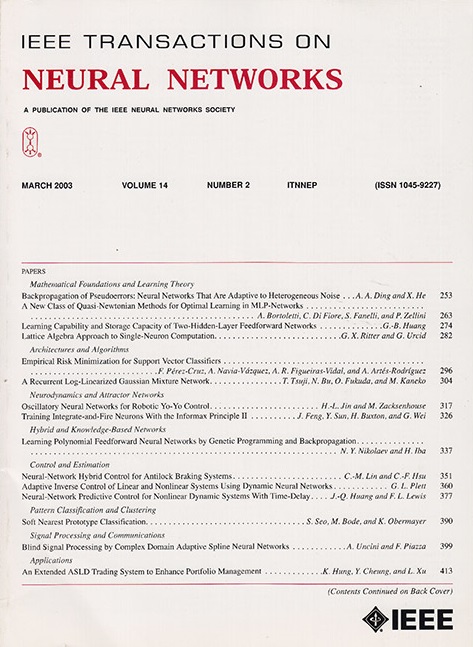联邦学习扭曲微调特征和鲁棒性不佳的风险。
IF 10.2
1区 计算机科学
Q1 COMPUTER SCIENCE, ARTIFICIAL INTELLIGENCE
IEEE transactions on neural networks and learning systems
Pub Date : 2025-07-17
DOI:10.1109/tnnls.2025.3585063
引用次数: 0
摘要
为了解决与特定领域数据集相关的稀缺性和隐私问题,将联邦学习与微调(FT)相结合已经成为一种实用的解决方案。然而,我们的研究结果表明,联邦学习有扭曲FT特征和损害预训练模型的分布外(OOD)鲁棒性的风险。通过引入三个稳健性指标并在不同的稳健性数据集上进行实验,我们通过仔细检查模型内数据表示、可转移性和偏差的能力来阐明这些现象。为了减轻实际联邦学习对模型鲁棒性的负面影响,我们引入了一种基于一般噪声投影(GNP)的鲁棒算法,以确保目标分布上的精度不会下降。具体来说,增强模型鲁棒性的关键策略是将鲁棒性从预训练模型转移到微调模型,同时加入少量高斯噪声来增强模型的代表能力。综合实验结果表明,我们的方法显著增强了不同场景下的鲁棒性,包括各种参数有效的FT (PEFT)方法,以及面对不同程度的标签分布倾斜和数量分布倾斜。本文章由计算机程序翻译,如有差异,请以英文原文为准。
The Risk of Federated Learning to Skew Fine-Tuning Features and Underperform Robustness.
To tackle the scarcity and privacy issues associated with domain-specific datasets, the integration of federated learning in conjunction with fine-tuning (FT) has emerged as a practical solution. However, our findings reveal that federated learning has the risk of skewing FT features and compromising the out-of-distribution (OOD) robustness of pretrained models. By introducing three robustness indicators and conducting experiments across diverse robust datasets, we elucidate these phenomena by scrutinizing the ability of data representations, transferability, and deviations within the model. To mitigate the negative impact of practical federated learning on model robustness, we introduce a general noisy projection (GNP)-based robust algorithm, ensuring no deterioration of accuracy on the target distribution. Specifically, the key strategy for enhancing model robustness entails the transfer of robustness from the pretrained model to the fine-tuned model, coupled with adding a small amount of Gaussian noise to augment the representative capacity of the model. The comprehensive experimental results demonstrate that our approach markedly enhances the robustness across diverse scenarios, encompassing various parameter-efficient FT (PEFT) methods and confronting different levels of label distribution skew and quantity distribution skew.
求助全文
通过发布文献求助,成功后即可免费获取论文全文。
去求助
来源期刊

IEEE transactions on neural networks and learning systems
COMPUTER SCIENCE, ARTIFICIAL INTELLIGENCE-COMPUTER SCIENCE, HARDWARE & ARCHITECTURE
CiteScore
23.80
自引率
9.60%
发文量
2102
审稿时长
3-8 weeks
期刊介绍:
The focus of IEEE Transactions on Neural Networks and Learning Systems is to present scholarly articles discussing the theory, design, and applications of neural networks as well as other learning systems. The journal primarily highlights technical and scientific research in this domain.
 求助内容:
求助内容: 应助结果提醒方式:
应助结果提醒方式:


